Analytics


R
Navalny poisoning raises prospect of new
sanctions on Russia
ussia faces the prospect of new Western sanctions following the poisoning of
Russian opposition leader Alexei Navalny, a likelihood heightened by increasingly assertive
Russian interference in post-election unrest in Belarus and US government reports of Russian
interference in the upcoming US presidential election.
- Although Germany is under renewed pressure to end its support for the Russia-led
NordStream II pipeline project, any EU sanctions in response to Navalny's poisoning will
likely include diplomatic and political steps before any economic sanctions are
considered.
- If Russia stages an overt military intervention in Belarus, the EU will likely expand
sectoral sanctions, potentially including a further curbing of technology transfers.
- While the US has several options for quickly augmenting existing sanctions, it is
unlikely that the Trump administration will target Russia before the US elections in
November; any US response will likely focus on individuals linked to the state.
- A Congressional recess ahead of the US elections will make it difficult to adopt a new
package of significant sanctions before November; expanded sanctions are likelier under
a Biden administration.
Control Risks
September 2020


